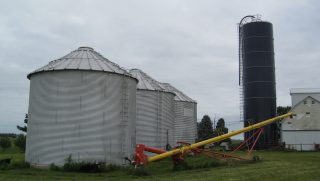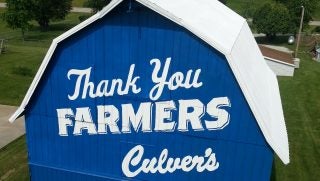Independence. It’s one of the most common threads woven across rural America. But when does independence become a weakness, and possibly lead to isolation and loneliness?
This is an issue that’s not just about mental health, it’s about the human condition. The truth is that we all need someone else — we need companionship to thrive and break the loneliness. Even the most independent farmers and ranchers.
Social support has a protective factor against suicide, according to Social isolation and suicide risk in the NIH Library of Medicine. “The social environment, including interpersonal relationships, correlates to suicide and can be effectively targeted from a prevention perspective.”
Well-known organizational psychologist Adam Grant shows that out of 90 studies that included 2.2 million people, loneliness and social isolation predict mortality from cancer and all causes. As he noted “human connection is vital to well-being.” Even the most independent and introverted amongst us.
Agricultural groups & outreach
Working alone doesn’t mean you need to face the stressors of agriculture alone. Many states have programs to provide more social support, such as agricultural leadership groups, commodity boards, etc. Egg Farmers of Canada have created a women’s conference to help facilitate networking, while Mind Your Melon is an effort to help fruit and vegetable producers that Florida produce grower Marshal Sewell initiated.
Peer mentoring
North Carolina created a Farmer to Farmer peer mentoring network, pairing farmers together in different parts of the state. Participants have said, “Having someone who looks like me, talks like me, understands and has comradery without the whole neighborhood knowing my business.”
Many farmers worry about privacy and confidentially when it comes to mental health. Peer farmers are not in the same or contiguous county because of this and perceived competition concerns. Instead, people are paired together by similar commodity, spiritual beliefs, education, or other commonalities. Some farmers seek help themselves, others are referred by a Cooperative Extension agent, other farmer, or family members.
When a referral comes in, a nurse does an intake and evaluation of needs. Farmers are free to choose how they want to connect; most connect virtually. The timing and frequency are up to them. The nurse checks back in to see how things are going.
Farmer to Farmer is coordinated by the North Carolina Agromedicine Institute and funded by the NC Tobacco Trust Fund — which allowed for curriculum development and training for peer farmers on topics such as listening, crisis, counseling, resources, limits, etc. They’re planning additional curriculum on grief, military veteran farmers, and suicide survivorship.
Robin Tutor Marcom, who has overseen the Farmer to Farmer program since it started, reports, “Matches have gone well; it’s been interesting to see the dynamics with those who have had a farmer in crisis. Farmer to Farmer is not for everybody, but there have been moments when a peer farmer was able to ask the nurse for more help. I’ve also heard how important peer networks are to farmers.”
She’s also heard of a group of producers from different states who have a text support group and one grower stopped to tell her how he’s connected with a farmer across the country for 15 years.
Local support groups
Randy Roecker, a Wisconsin dairy farmer, expanded to the family’s dairy in 2006 just before the 2008 recession. “I felt that I was losing my farm and the legacy of the farm my grandfather started in the ’30s, which started me spiraling out of control.”
After suffering alone through years of mental health treatment and then getting his depression under control, he started advocating for mental health.
After a local farmer died by suicide, Roecker reached out to the widow, and they started meeting with local farmers at a church for farmers to talk about what happened. “We spend so much time by ourselves. … The biggest thing is just to be there to listen.”
What started as a meeting of 40, turned into the Farmer Angel Network to support people in agriculture, ended up partnering with the Farm Crisis Center in Madison. Then other farmers began forming similar collaborations.
“It’s just fun to get together, like at a movie night we had last year. It makes a big difference when farmers get together,” he said.
Roecker finds himself opening up about the many pressures of farming. “If you’re out there to lend support and listen to them, it makes a big difference.”
Nathan Brown, a beef and row crop farmer in Ohio and father of three young children, has dealt with depression a couple of times. This led him to build local networks and write articles around mental health to help people in agriculture in his local community. He has also worked with Ohio’s Farm Stress Network, which started the Got Your Back campaign.
“No one wants to talk about their feelings or mental health. It’s been amazing to see the support from the ag industry as a whole for this.” He believes in getting people trained for suicide prevention, QPR (Question, Perform, Respond) and spotting things out of the norm — “it is crucial for our rural areas.”
“Being open and honest yourself and what you’re going through is critical to helping people open up” notes Brown. He suggests that most people are just looking for someone to listen. “You don’t have to ask someone if they’re depressed or have anxiety, just ask how they’re doing.”
Faith groups
Nebraska feedlot owner Joan Ruskamp has two things that have helped her keep perspective.
“I am in a local Bible study group that meets weekly. We started meeting via Zoom during the COVID-19 pandemic, and since we are spread out 35 miles, we have kept most of the sessions on Zoom, meeting in person for special occasions,” she said. “The faith sharing and trials we share connect and strengthen us. The second thing is to become part of something bigger than myself/my farm. Working with people on a specific goal or mission is energizing and also keeps me connected. Isolation magnifies all negative thoughts and feelings.”
South Dakota Pastor and former farmer Alan Blankenfeld, founded Moody County Cares, to help farmers understand they don’t need to keep things bottled up. He believes pastors need to get out and visit farmers to get them talking.
Who is your underground network?
If you’re not connected socially, it’s time to ask yourself how you can be. Look for ways to join peer networks, whether formal or informal. As Marcom aptly described “it’s almost like creating an underground network.”
How can you build your social connections? Remember — your health depends on it.
Michele Payn helps the people of agriculture have the tough conversations about managing stress, connecting with consumers, and making sense of science through her speaking and writing. Learn more at causematters.com or follow @mpaynspeaker on social media.



